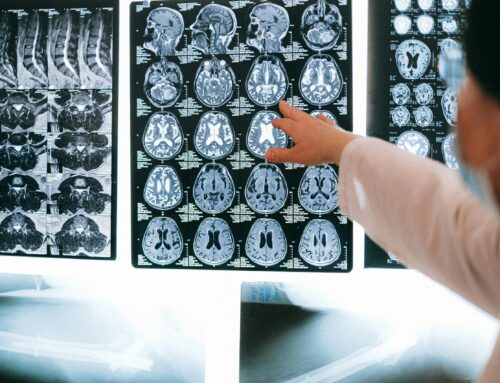A clinical diagnosis for Autism Spectrum Disorder can help your child’s life in a number of ways. For one thing, it adds clarity. With a proper diagnosis given, parents and teachers can better understand the child’s behaviors and how to support them. It can help your child better understand themselves and the way they navigate with the world.
In some cases, an ASD diagnosis might mean that your child is eligible for special educational services such as an individualized education plan. However, this isn’t always the case, and parents would be wrong to assume that simply because their child has a clinical ASD diagnosis, they will be eligible for special services. In today’s blog, we’ll discuss what an ASD diagnosis means for your child and why it doesn’t always mean educational availability for special services.
What Is a Clinical ASD Diagnosis?
A clinical ASD diagnosis is an official determination by a medical professional that one has Autism Spectrum Disorder. ASD is, according to the CDC, “a developmental disability that causes significant social, communication, and behavioral changes.”(1) As the “spectrum” part of the name might indicate, ASD can present itself in a variety of ways. Some children with ASD are barely verbal or may communicate in specific ways — such as through quotes. Others might exhibit symptoms that merely appear socially awkward or introverted.
Symptoms of ASD often become present in childhood, which is why most ASD diagnoses are made with children. Children with ASD may seem “off in their own world.” They may have trouble relating to other children, responding to usual social clues, expressing their needs or relating to the needs of others. Children with ASD often rely on routine to help them navigate the world and can be frustrated when that routine is interrupted.
There are no blood tests or physical medical tests that can diagnose autism. This is typically a diagnosis given as the result of an evaluation for children or adults aged two or older. Doctors or clinicians use symptom criteria determined in the Diagnostic and Statistical Manual of Mental Disorders (DSM) in order to see if there’s enough of a parallel in the child’s behavior to behaviors commonly present in ASD.
Clinical Diagnosis vs. Educational Eligibility
The Individuals With Disabilities Education Act (IDEA) grants that schools must provide a “free appropriate public education” to all students with disabilities.(2) While the ideal is to learn alongside their peers as much as possible, in some cases, students with disabilities may qualify for special education services, such as an individualized education program (IEP) that meets their specific needs. However, just because a student has been diagnosed with ASD does not automatically mean that they have educational ability for special services. This is where we get into the difference between clinical diagnosis and educational ability.
The key here is that students must have a “qualifying disability” in order to be eligible for special services. There are fourteen disabilities laid out in IDEA’s educational eligibility terms that could potentially qualify for special services, and ASD is, in fact, one of them. However, while diagnoses are given out by medical professionals, educational eligibility is determined by a committee of education professionals and students’ parents. This committee determines on a case-by-case basis that the student: a) meets the criteria for the qualifying disability, and b) is in need of special services.
Because ASD is a spectrum disorder, not all students with ASD will have their academic performance impacted to the same degree. Again, the goal is for students with disabilities to be able to learn alongside their peers as much as possible. For some students with ASD, a traditional classroom environment might not be detrimental. For others, an IEP is necessary. That’s why it’s important for those who make the decisions of educational eligibility to examine the case closely.
If you feel that your child is entitled to educational eligibility for special services that they have been denied, Neurobehavioral Associates can have your back. We offer assessment services, as well as parent resources that can help you understand yours and your child’s rights. Contact us today to learn more about how we can help you and your child with ASD.
References:
- What Is Autism Spectrum Disorder – the Center for Disease Control and Prevention
- Individuals With Disabilities Education Act: What You Need to Know – Understood.org






